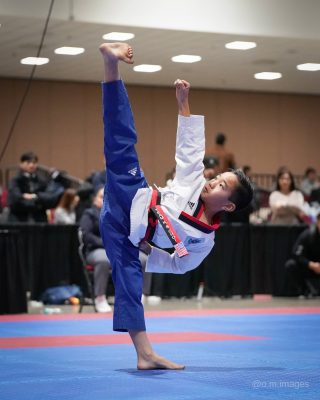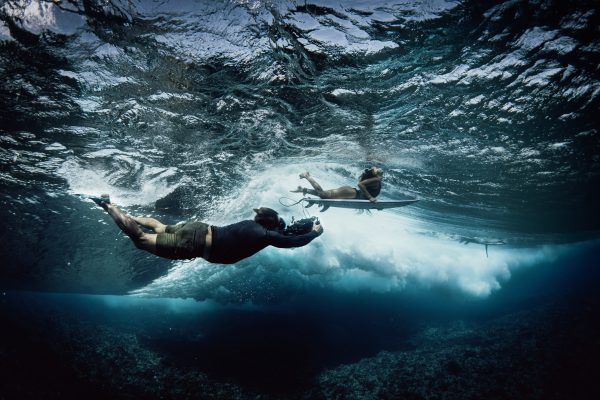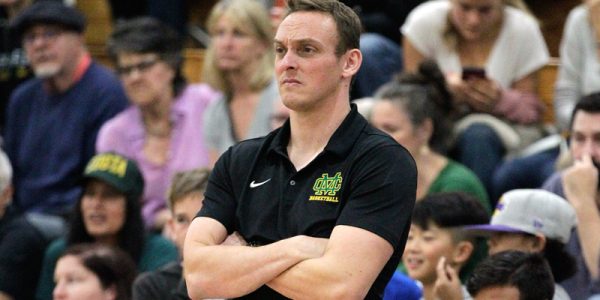by Rachel Reeves
Jessica Patay can easily return, in her mind, to the night in the summer of 2003 when a doctor called with her newborn son Ryan’s diagnosis.
She and her husband, Chris, had returned to their Rancho Palos Verdes home a week earlier. They’d been in the hospital for a month, as doctors ran tests to understand why Ryan wasn’t crying or waking up to eat.
Though they still had no answers, they decided it was time to return to their two-year-old son, Luke, whom their parents had been watching. Chris, a partner in a law firm downtown, had to get back to work. They took the feeding tube and their newborn home and waited for a call.
A week later, the diagnosis was delivered gently and matter-of-factly: Ryan had Prader-Willi syndrome, a genetic disorder with a strange collection of symptoms, including an intellectual disability, behavioral struggles, anxiety, an insatiable appetite, and short stature. He would need a geneticist, a gastroenterologist, a urologist, a pulmonologist, and an endocrinologist, among a slew of other doctors.
“You can’t even believe a disorder like this exists,” Jessica said in an interview.
What happened next would change the trajectory of her life. She would go on to found We Are Brave Together, a non-profit organization focused on supporting moms who care for children facing medical, developmental, physical, cognitive, and psychiatric challenges. It would grow into 2,550 moms in 50 states and 24 countries, a popular podcast in its sixth season, and a forthcoming book.
But before all that, and after the Patays got the diagnosis that would shape their daily lives, Chris went online and found the Prader-Willi Syndrome Association (PWSA), a national organization based in Florida. He called the number for the California branch. Two days later, Lisa Graziano, the Prader-Willi California Foundation’s executive director, called Jessica.
“Hi,” Graziano said. “Congratulations on the birth of your baby boy.”
The Patays’ hearts swelled.
“Everyone had been saying, ‘I’m so sorry,’” Patay said. “For her to say congratulations was just such a beautiful reminder that, yeah, we just had our second child, and that’s something to celebrate.”
Graziano knew what to say because she knew how Patay felt. Four years earlier, when she and her husband brought their newborn son Cameron home from the hospital, the only congratulations they got were from their next-door neighbor, who had decorated the front door of their condo with streamers and balloons.
Graziano, a therapist by profession, plugged into PWSA six months later, around the time Cameron stopped growing, which is not typical of babies with Prader-Willi syndrome. Since then, she’s served on the board, founded a support group for Southern California, and become the state’s PWSA branch director. She knew how much a phone call could feel like a lifeline.
Graziano told Patay she would be her “mentor mom” and invited her to call anytime with questions about Prader-Willi syndrome.
“The moment I knew I wasn’t alone, I just exhaled all this anxiety and fear because I had somebody to hold my hand and walk through it with me,” Patay recalled.
Graziano also told her about a support group based in Redondo Beach. The Patays joined the group and, in Jessica’s words, found their tribe. She wrote and thought a lot in those months and years about how much connecting with other people who understood how she felt had mattered to her. She kept returning to the idea that perhaps her skills could help other people who had felt the loneliness and anxiety of caring for a child with special needs.
“When such an incredible challenge is handed into your life, I’m one of those people who asks why and what now? What am I supposed to do with this?” she said. “I was always open to the answer to that question: what am I supposed to do with this?”
About 13 years later, she got her answer. For some years, she and a group of about a dozen friends had been doing weekend retreats. They’d all gather in the same place, invite an inspirational speaker, and share stories. In 2016, something clicked for Patay.
“Who needs a weekend off more than caregiving moms?” she thought. She and a best friend talked about raising money to sponsor retreats. That friend was busy working full-time and going to graduate school, but pushed Patay out of the nest, and in 2017, We Are Brave Together launched.
“She saw that it was so helpful to connect with other families who share your same diagnosis but saw that wasn’t really happening in the general arena,” Graziano said. “So she said I’m going to fill that gap. Because I think there was a gap there. She wanted to connect moms where it isn’t just focused on this one particular thing, but seeing there are similarities no matter what our kid’s diagnosis is. We all need support.”
Patay had a party in her backyard to share the vision and 60 moms showed up. She didn’t know that it would be the initiation of an international movement.
“It’s just blossomed and grown in every way possible,” Patay said. “I mean, it has exceeded my expectations for sure.”
The We Are Brave Together team grew beyond a board to include a podcast editor and producer, a social media manager, a website manager, an assistant, a CPA, a bookkeeper, an attorney, and 22 group leaders. The organization began running support groups, workshops, and weekend retreats; sending out newsletters with helpful content; and writing curricula.
In 2020, when people could no longer meet due to restrictions designed to stem the spread of the coronavirus, Patay launched a podcast. Every episode tackles a different topic, such as how fostering and medical trauma intersect, how to deal with aggressive children, what to do when a spouse isn’t involved in caregiving, and how to balance caring for a child with special needs and caring for that child’s siblings, too.
The organization’s first satellite “connection circle,” its word for a support group, was also launched during the coronavirus pandemic. A woman who had attended a retreat in San Diego asked if she could host a group. Patay and her team wrote a curriculum and a training plan. The circle became a prototype. People in other states and countries began approaching her about hosting a circle
“More often than not, people approach me because they’ve experienced the sacred space, the non-judgmental, loving, supportive, validating space we’ve created, and they express, I want to bring this to the moms in my city,” Patay said.
We Are Brave Together now has circles all over the country and the world. Leaders are carefully screened; they must be actively taking care of their mental health and they must understand that the organization’s ethos is grounded in creating safety.
“All diagnoses matter,” Patay said. “So we don’t allow anybody to say, your kid only has this, my kid has this and it’s worse. We recognize that there’s a spectrum in caregiving, from light to heavy to extremely complex, but it all matters. Every mother counts, every child counts, and we’re here to support and validate every single one.”
While connection circles now meet in person, some remain virtual. Some focus on specific topics, such as kids who struggle with mental health or kids aging out of the school district.
Patay and her team released an anthology featuring 21 writers who are also caregivers, on May 1, just in time for Mother’s Day. Any mom who is also a caregiver can join We Are Brave Together through the website (WeAreBraveTogether.org/).
“Motherhood is hard anyways,” Patay said by way of invitation. “Motherhood is challenging, parenthood is challenging, and when you add extra diagnoses, unique needs, medically complex needs, mental health struggles, it just makes it exponentially harder. Exponential motherhood requires exponential support. You don’t have to buy into the martyr philosophies and you don’t have to do it alone.”
To order a copy of “Becoming Brave Together,” visit the organization’s website.To donate to the organization’s annual 5k, in October, email noel@wearebravertogether.org. An anonymous donor has offered to match all new donations up to $15,000. ER
Special Needs Summer Camps
Summer camps for kids and adults with special needs.
Friendship Camp
Organized by Friendship Foundation, Friendship Camp is a daytime camp that runs for six weeks, four days a week. The camp involves a variety of activities, including art, music, science, dance, cooking, and sports. Scholarships are available. Friendship Foundation also runs a week-long beach camp. Visitfriendshipfoundation.com for more information.
Camp Escapades
Momentum offers two week-long camps for children between five and 14 years of age featuring dance, sports, music, games, yoga, cooking, water play, and other special events. Camps feature volunteers who act as participants’ one-on-one buddies for the week. Call the Momentum clinic in Torrance at (310) 328-0276 for more information.
RAD Camp
Rising Above Disabilities offers overnight summer camps in June and July at Vanguard University in Costa Mesa. There are camps for campers between the ages of five and 21, as well as camps for adults over 22. The camps involve art, games, science, music, and evening events. All participants are paired with a one-on-one counselor and scholarships are available. For more information, email Camp@RADCamp.org. Pen









